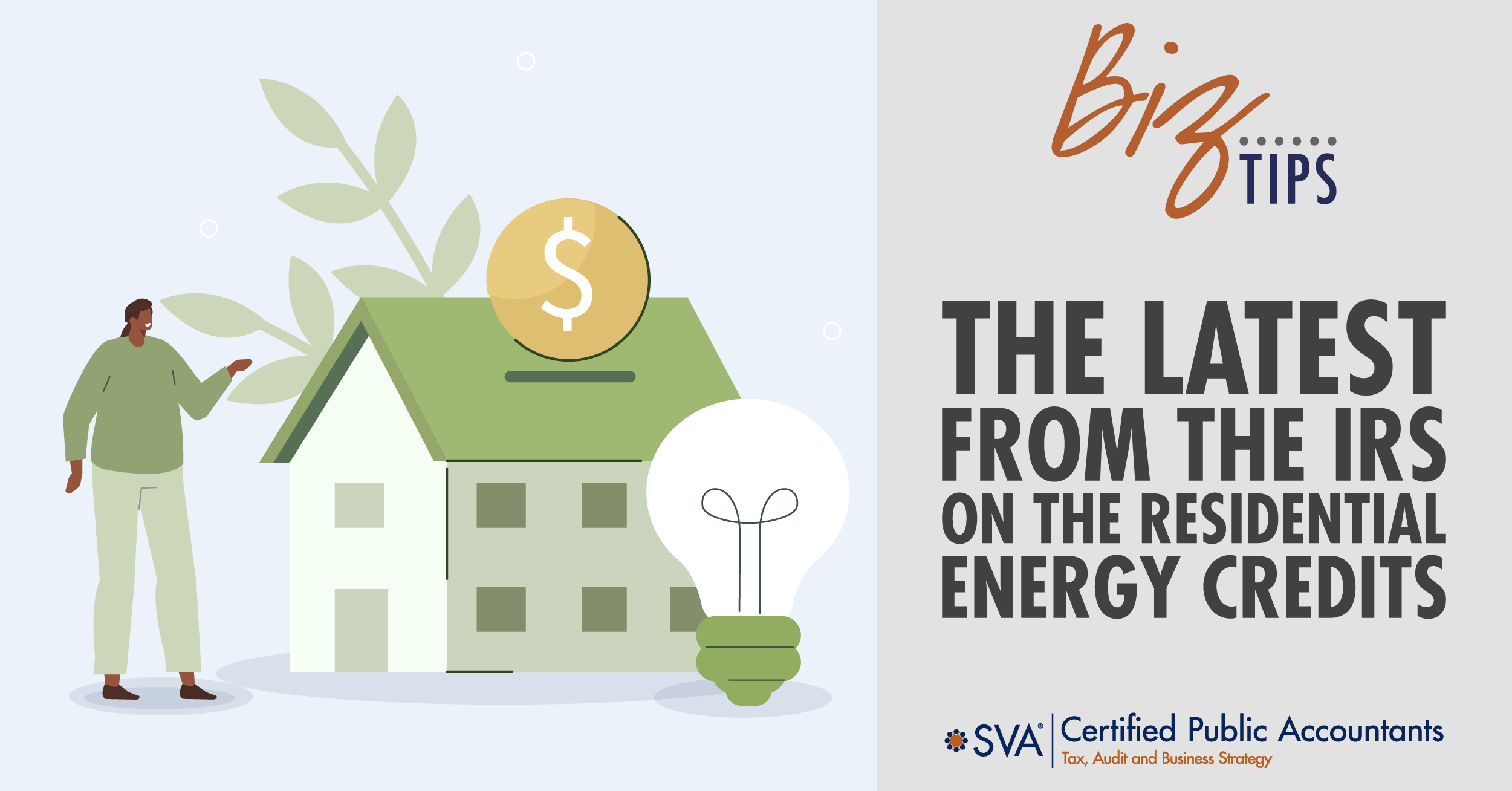The Inflation Reduction Act of 2022 (IRA), signed into law last August, touched on a wide variety of climate change and clean energy matters.
But perhaps the most important changes for individuals were alterations to the existing Residential Energy Credits. These credits continue to promote clean energy and energy-efficient upgrades for individuals throughout the country by providing certain tax advantages.
(Download Video Transcript)
The qualifications are somewhat complex, so the IRS released a Fact Sheet in December that summarizes the qualifications for two credits:
- The amended energy efficient home improvements credit under section 25C
- The new residential clean energy property credit under section 25D
Fact Sheet 2022-40 sets out the general requirements for each of these credits and provides several FAQs for both individuals and tax professionals.
The Amended Energy Efficient Home Improvement Credit
Previously, the Energy Efficient Home Improvement Credit was a $500 lifetime credit. However, the IRA increased the lifetime limit to $1,200. The amount of the credit is 30% of the sum of the amounts paid for certain types of home improvement expenses.
Essentially, homeowners can take advantage of this credit if they make certain kinds of energy-efficient improvements to their homes.
The IRS provides some helpful examples and outlines cost restrictions for several specific home improvement items, including the following:
| Item |
Credit Percentage |
Maximum Credit |
|
Energy Audit
|
30% of costs
|
$150
|
|
Exterior Doors
|
30% of costs
|
$250 per door, total limitation of $500
|
|
Exterior Windows and Skylights
|
30% of costs
|
$600
|
|
Insulation Materials or Systems and Air Sealing Materials or Systems
|
30%
|
No specific limitation
|
The Fact Sheet also includes specific information about what constitutes an energy-efficient improvement. For instance, windows and doors must meet Energy Star certification requirements.
The IRS also clarified that any energy-efficient home system might qualify for the credit, but each system has an individual limit of $600. These systems include:
- Central air conditioning
- Natural gas, propane or oil water heaters, furnaces, and hot water boilers
- Electric or natural gas heat pump water heaters (and heat pumps) (no $600 limit, yearly limit of $2,000 instead of $1,200)
- Biomass stoves and biomass boilers (no $600 limit, yearly limit of $2,000 instead of $1,200)
If a homeowner is considering an energy-efficient upgrade, they may want to review the credit opportunities and restrictions as set out in Fact Sheet 2022-40 for helpful guidance.
The Residential Clean Energy Property Credit
The Residential Clean Energy Property Credit is a new credit. Like the home improvement credit, this is a 30% credit for certain improvements to residential energy-efficient properties.
The main difference between the two credits is that the Residential Clean Energy Property Credit specifically targets clean energy rather than just energy-efficiency improvements.
For instance, property owners may be able to take this credit for the following:
- Installing solar panels
- Incorporating solar water heaters
- Building wind turbines
- Fuel cell expenses
- Geothermal heat pump expenses
- Battery storage technology
The Residential Clean Energy Property Credit does not have an upper dollar limit. Instead, it is limited only by the 30% cap and time (the property must be placed in service between 2022 and 2032). There are, however, certain restrictions for fuel cell expenditures, with a $500 cap for each half kilowatt of capacity.
Like the Energy Efficient Home Improvement Credit, clean energy improvements must also meet certain minimum requirements. For example, solar improvements must be certified for performance by the nonprofit Solar Rating Certification Corporation or a comparable entity endorsed by a local state government.
The Residential Clean Energy Property Credit is also limited to just the taxpayer’s home. Landlords or other property owners cannot take credit for a property if they do not live there themselves. However, renters can take the credit if they are improving a home they do not own but rent from a third party.
Using Fact Sheet 2022-40
The Fact Sheet addresses many commonly asked questions about each credit, such as the timing of the credit, whether the credit can apply to labor costs, and how long an item must remain in use to obtain the credit.
However, it does not address every situation. The IRS has yet to provide guidance about how homeowners and contractors can certify or identify certain expenditures.
If you think you may qualify for the credit, be sure to obtain and retain the documentation for all expenses related to the installation or upgrade. Your tax professional will be able to review these documents to ensure that you qualify for the credit and help you take steps to obtain it.

© 2023 CPA ContentPlus

